What To Expect
Brazil is a world-famous country known for its extravagant festivals, beautiful scenery, colorful people, amazing beaches, and natural wonders. It is the home of Carnival, Copacabana + Ipanema beach, the Amazon Rainforest, and many other attractions that millions of visitors come for every year.
The biggest attraction is Rio de Janeiro which is a stunning city with lots to see and do and it’s also where the most famous Carnival in the world is held. Other popular cities include Salvador, Olinda, Sao Paulo, Manaus, Recife, Fortaleza, Brasilia, Florianopolis, Belo Horizonte, Curitiba, Paraty, and Natal, to name a few.
Nature is also a major part of Brazil, headlined by the huge Amazon Rainforest which makes up the whole northwestern part of the country. Other natural wonders include the Iguazu Falls (Foz do Iguacu in Portuguese), the Pantanal which is the largest wetland in the world, and the white sand dunes of Lençóis Maranhenses National Park.
Brazil is an amazing country to visit, but it can be dangerous in some places. However, as long as you take the right precautions and stay safe, you will have nothing to worry about. The country is very accustomed to tourism and most locals are extremely warm and friendly so you are almost guaranteed to have a great time!
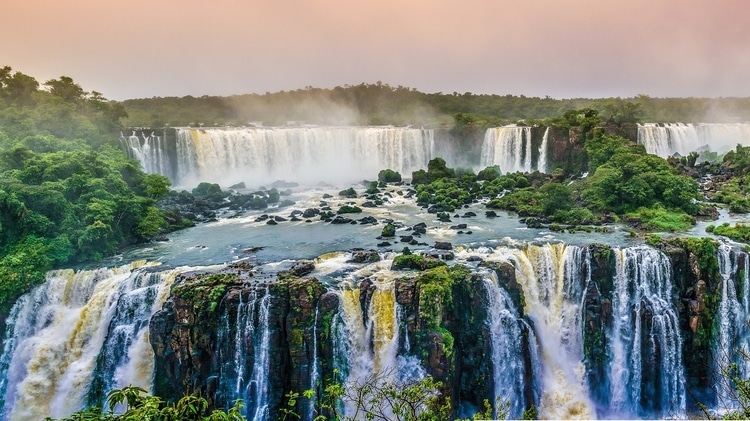
Citizens of most developed countries can enter Brazil visa-free for up to 90 days. If you are not a citizen or permanent resident of a visa-exempt country, you have to go to the nearest Brazilian embassy and apply for a Visit Visa to be granted entry.
The Hepatitis A, Typhoid, and Yellow Fever vaccines are recommended, especially if traveling to rural areas. Also make sure you are up to date on your standard vaccinations and consult a health professional for further advice.
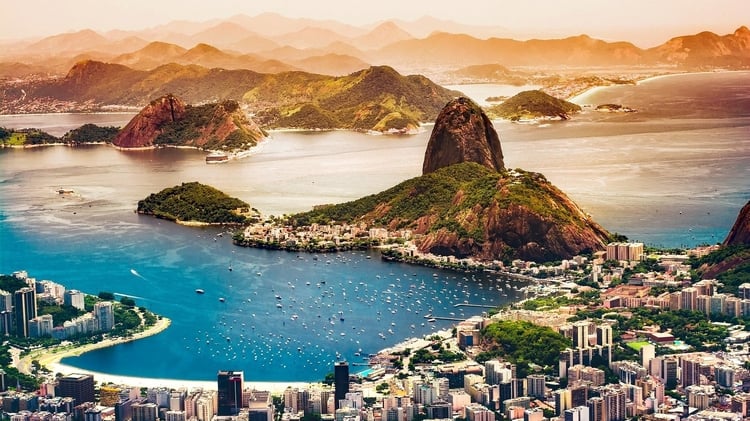
Key Information
Population: 212 Million
Capital City: Brasilia
Language Spoken: Portuguese
Currency: Brazilian Real (BRL/R$)
State Railway: None
Driving Side: Right
Largest Airports:
1. Sao Paulo (GRU) – Guarulhos
2. Sao Paulo (CGH) – Congonhas
3. Brasilia (BSB)
4. Rio de Janeiro (GIG) – Galeão
5. Belo Horizonte (CNF) – Tancredo Neves/Confins
Best Time To Visit
Most people assume that Brazil is always warm and while many regions are, the country is also home to several different climates. The north and Amazon are hot year-round with more rain in the summer (Nov-Mar) whereas the south can experience chilly weather in the winter (Jun-Aug).
The best time to visit Brazil is during its shoulder seasons (April – May & September – October). Temperatures are pleasant, the skies are clearer, and prices are lower. However, if you’re traveling for Carnival, then February – March is the best time.
If you plan to travel during the high season, make sure to reserve your transportation and accommodation in advance to avoid sold-out tickets and fully-booked rooms, especially if traveling for any festivals like the Carnival.
High Season: December – March
Low Season: May – September
Top 5 Destinations

Rio de Janeiro

Iguazu Falls

Salvador

Recife
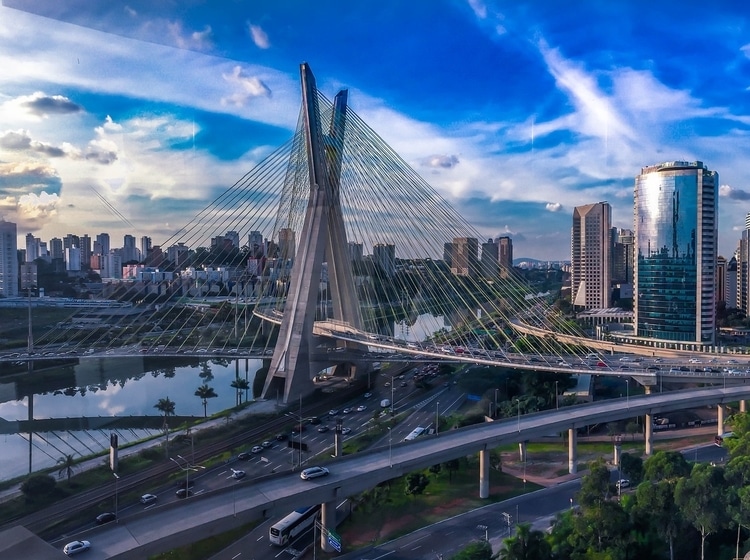
Sao Paulo
Currency Information
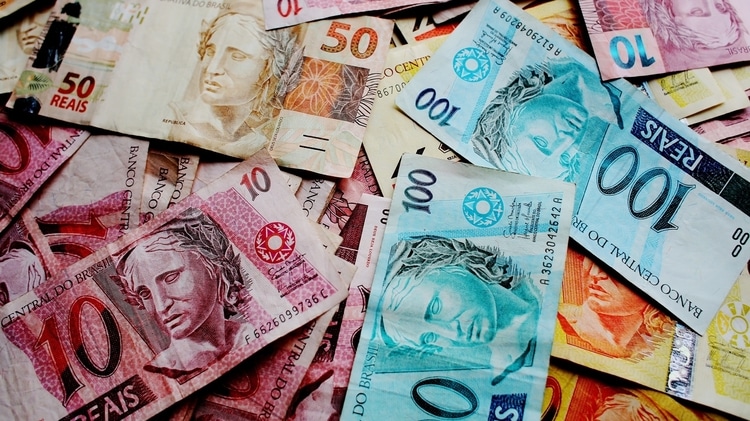
The currency used in Brazil is the Brazilian Real (BRL/R$) (plural = Reais). The notes come in denominations of R$2, R$5, R$10, R$20, R$50, & R$100.
The Real is further divided into 100 Centavos (c). The coins come in denominations of 5c, 10c, 25c, 50c, & R$1.
Use the currency converter below to determine the latest exchange rate.
Tipping Guide
Tipping is customary in Brazil, although at more modest rates than in the USA. When tipping, here are some important guidelines to follow:
Hotel Bellhops: R$5-10 per bag
Hotel Housekeepers: R$5-10 per day
Restaurant Servers: Gratuity is often included, but if it isn’t then tip 10% of the total bill
Beach & Street Vendors: R$5-10, depending on the service
Bartenders: Gratuity is often included, but if it isn’t then tip 10% of the total bill
Taxi/Uber Driver: round up to the nearest whole number
Tour Guide: 10% of the total tour price on single-day tours and R$25-50 per day on multi-day tours
Note: always check if there is a service charge (taxa de serviço) already included on your bill before you tip
Power Outlet Information


Similar to Europe, Brazil uses the Type C outlet. However, they are unique in that they are one of the few countries that also uses the Type N outlet. Type J is also very similar to Type N, but they are not compatible.
However, oval-shaped Type C plugs are compatible with Type N outlets meaning that luckily, a Type C adapter is all you need when traveling to Brazil.
Get your compatible Type C adapter here.
Brazil uses two different voltages (127V & 220V) and it’s not always easy to tell which one is used by any specific outlet. Learn more about how this may affect your electronic devices in my Guide to the Top Travel Accessories.
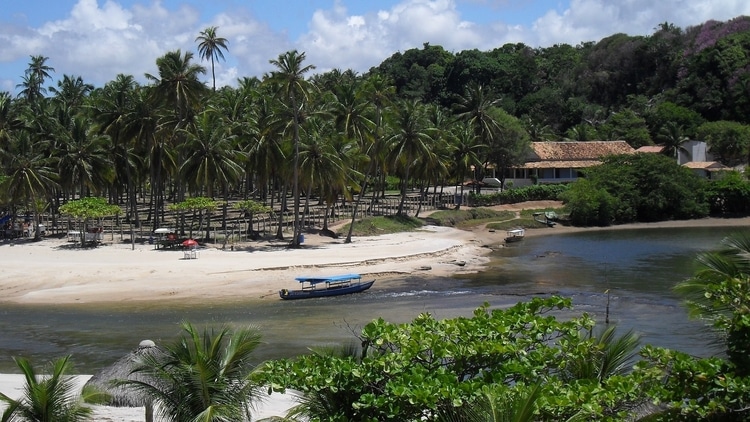
Cellphone Information
Brazil has average overall 4G LTE coverage and it can be spotty in rural areas. Make sure your phone is GSM-compatible with the primary 3G frequency and 4G LTE band used in the country to ensure you will always have connection.
Learn more about this in my Guide to Travel-Ready Phones.
Information about local prepaid SIM cards in Brazil
Calling Code: +55
Emergency Numbers: 190 (Police), 192 (Ambulance), 193 (Fire)
3G Frequencies Used: 2100 (primary) + 850 & 900
4G LTE Bands Used: 3 (primary) + 1, 5, 7, & 28


